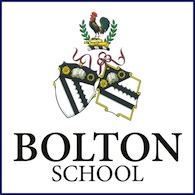In recent weeks Bolton School has secured the æTriple- TripleÆ û winning all three age group national Water Polo titles for the third year running. This is not only three national titles, but also a national first. No other school has achieved this run of success. In the same few weeks we have also become national champions in the Royal Society of Chemistry æTop of the BenchÆ competition. So what is it makes for success on the national stage.
Certainly talent is important. The school has some fine athletes and scholars with natural flair, aptitude and ability. However, that is not enough and I would point towards three ingredients of success at the highest level.
The first is commitment. Any talent needs to be nurtured and developed. The old saying of æPractice makes perfectÆ has become the 10,000 hour rule in Malcolm GladwellÆs book Outliers. 10,000 hours is the total amount of time put in by those who excel in their chosen pursuit. Every morning I see the Water Polo players coming to school at 7.30 for their pre-school training session. They need to train to be fit and also to train to have match play skills and that takes time. This is where the commitment comes in to things. All this training, early mornings, going along when you donÆt feel like it, keeping going à all that happens before any success comes as the reward. It is sheer hard work and tenacity.
The second is about how teams work. There may be no æIÆ in æteamÆ, as many management training courses tell us, but in both these competitions the role of the individual within the team is crucial. There is no possibility of carrying a member who is not contributing fully. In the chemistry competition each member of the team sits an individual exam paper and they are scored and added up to the total. Everyone matters. In the afternoon of the competition the team work together on a lab based investigation. The nature of the investigation is that it requires the task to be divided and shared, with each team member contributing to the final result. Supporting each other, knowing that national success is not about one star but about every individual performing, is key to high level success.
The third and vital contribution to national level achievement is teaching. Teachers (or coaches) motivate, they develop skills, prepare the teams for the competition and what to expect and how to react to different situations. An expert teacher not only transfers their knowledge and skills but also transfers their passion, wisdom and experience.
These three ingredients of success have helped us to national success. Yet they are actually what everyone sitting external national exams this summer needs. They will need commitment to study; they will have needed to have the support of others around them in order to do their very best. And they will have needed the inspiration of a great teacher.

Leave a Reply